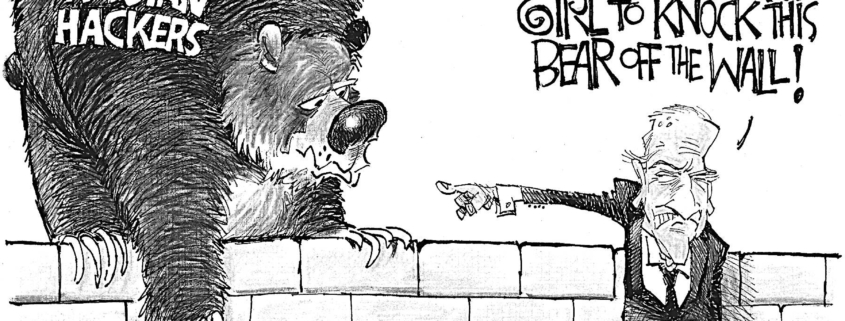Guest Editorial: Improving cybersecurity vitally important to U.S.
Cybersecurity goes beyond protecting your identity or ensuring safe elections. As recent weeks have demonstrated, internet security is just as important to the nation’s infrastructure as roads, bridges and airports.
In May, Christopher Krebs, former head of the Cybersecurity and Infrastructure Security Agency, warned a congressional hearing that the world was on the cusp of a “pandemic of a different variety. … Cybercriminals have been allowed to run amok while governments have mainly watched from the sidelines, unclear on whether cybercrime is a national security-level threat. If there was any remaining doubt on that front, let’s dispense with it now: Too many lives are at stake.”
Two days later, Colonial Pipeline was struck by the largest known hack on U.S. energy infrastructure. The result was a shutdown of a major fuel pipeline connecting the East Coast, resulting in long lines and soaring prices at gas stations as consumers engaged in panic buying. The company paid hackers $4.4 million to regain control of its systems.
Now, JBS Foods has been hit by a ransomware attack on its operations in North America and Australia. JBS, the world’s largest meat producer, has closed facilities in several states and canceled shifts at other plants.
“Attackers are operating like a well-oiled business industry, yielding high profits in a year that most businesses struggled,” one threat analyst told Vox.com. “Why? The new ransomware business model is relentless, extortive, and paying off.”
Threats to government entities are equally nefarious. In January, the office of Washington’s state auditor was hacked, exposing the files of 1.6 million unemployment claims from last year. The auditor had received the files from the Employment Security Department while investigating fraudulent claims that were paid.
The threat of identity theft through the hacking of banks or credit companies or government agencies is well known. Victims can spend countless hours canceling credit cards, securing accounts and explaining that, no, they did not purchase $10,000 worth of items on Amazon.
But cybersecurity threats against major…


